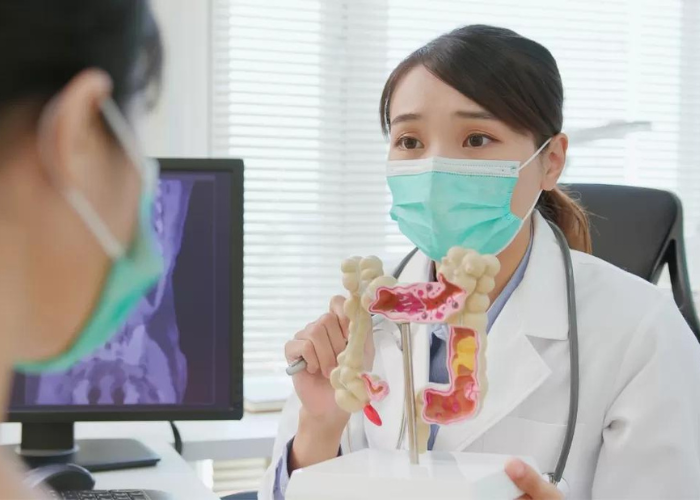Liver disease and associated digestive disorders are not new, although our knowledge of such issues continues to grow through progressive understanding and research. So old is in fact our knowledge of this area of medical science, that it was first identified around 500 BC by Hypocrates.
Commonly associated with the liver is cirrhosis, stemming from the Greek word ‘kirrhos.’ According to the Lancet it was René Laennec (1781–1826), a French physician and musician who first used the term in 1819. However, Identification of the condition goes back much further. It was John Browne, and English surgeon that described a condition of the liver where it adopted a glandulous appearance in 1685.
Today liver and digestive health issues are numerous and varied. Depressingly, 1 in every 4 deaths worldwide are associated with some form of these health issues, and this is a figure which is rising. The increasing numbers of liver and digestive diseases is largely thought to be due to lifestyle choices on behalf of the sufferers.
Understanding the Liver
The liver has numerous functions, one of which is to metabolize drugs. The liver converts drugs and other substances that would otherwise be toxic, allowing them to excrete from the body. The speed and efficiency at which the liver undertakes this task will vary greatly from individual to individual.
The liver can also recognize when the body’s blood sugar is too low. When this happens, the liver releases glucose into the bloodstream, a process referred to as gluconeogenesis. This helps to maintain optimum levels of sugar in the blood and prevents hypoglycemia.
This vital bodily organ acts as a store for essential vitamins and minerals, such as vitamins B12, A, D, E, and K, along with iron and copper. The liver holds onto these vitamins and minerals as a reserve stock, only being released as the body requires them, this ensures that the levels of these essential nutrients remain constant and adequate.
The liver also produces fibrinogen and prothrombin, which are essential blood clotting factors. This is vital as part of the body’s natural process in reduction of blood loss following trauma. Additionally, fibrinogen and prothrombin produced by the liver are vital as part of the wound healing process.
Kupfer cells contained within the liver play a crucial role when the body is invaded by bacteria or viruses. The Kupfer cells in the liver play an active role in the destruction of these invaders allowing the dead debris to be excreted.
Natural hormones are also produced by the liver. The organ is a key component part in regulating blood pressure, it does this through the production of the hormone angiotensinogen. Growth and development in the young are influenced by the liver’s ability to produce the hormone GF-1. Also important in infants is body heat. Through a process in the liver called thermogenesis the liver aids in maintaining correct body temperature.
Perhaps understood by everyone is the liver’s ability to metabolize alcohol. The liver has the ability to convert alcohol into harmless substances, although excessive levels of alcohol consumption will cause liver damage and can lead to liver disease.
In our modern, and more enlightened times, it is starting to be understood how the liver has a role in mental health. Should liver function fail or be impaired, toxins will accumulate in the body which can have an adverse effect on brain function. This may exhibit itself as depression and anxiety.
One of the lesser-known abilities of the liver is that it is the only internal body organ with the ability to regenerate itself. In fact, up to 70% of a damaged liver can be extracted and it will regenerate and return to normal levels of functioning.
One of the most surprising facts about the liver is its regenerative abilities. The liver has an astounding ability to regenerate itself even after significant insult. This means that even if up to 70% of the liver is extracted, the leftover liver tissue can regenerate and restore the liver’s function.
Undoubtedly, the liver is a hard-working organ, and the vital work it does in the body is recognized at The Liver and Digestive Institute in Bangkok. This unique facility is dedicated to complex medical science and drives forward the understanding, diagnostics and treatment of liver and digestive health issues and disease.
Liver and Digestive Diseases
At the institute, all health issues relating to the liver and digestive system are diagnosed and treated within a modern medical environment utilizing state-of-the-art equipment. The institute’s team are internationally trained, multilingual and leaders in their respective fields.
Hepatitis A, B, and hepatitis C, along with cirrhosis, dyspepsia, ulcers, and abscesses are regularly diagnosed and treated at the institute with enviable levels of success. Acute and chronic pancreatitis, gallstones and bile duct stones are conditions on the increase and are successfully treated at the institute on a regular basis.
The institute is treating an ever-greater number of conditions that are on the increase in today’s world, including inflammatory bowel disease, or IBD, and irritable bowel syndrome or IBS. Cases of cancer are also rising and represent a challenge to many medical institutions. The Liver and Digestive Institute in Bangkok has been shown to be equal to the challenges in this area and consistently surpass patient expectations.
Treatment for Liver and Digestive Health Issues
The treatments and procedures employed at the institute are at the cutting edge of medical science. From X-rays, ultrasound, CT and MRI scans, biopsies, endoscopic surgery for tumors, polyps and cancers, the modern equipment and world class expertise employed result in the ultimate in medical care.
Minimally invasive laparoscopic surgery, unlike endoscopic procedures, utilizes small incisions to gain access to the body to undertake various procedures including the removal of cancerous growths. These procedures are performed with great skill by the institute’s surgeons, and through their ability to maximize this modern surgical technique, a patient’s recovery time is vastly reduced with improved prognosis.
Within the kingdom the institute is renowned for its level of care, but there is now an increasing number of patients from across the world being treated at The Liver and Digestive Institute in Bangkok which sits as testament to the exemplary levels of diagnostics, treatment and patient care that is available to all in this area of medical science.



